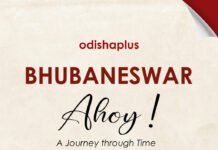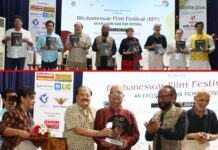Suresh Chandra Sarangi
‘Perspectives’ is an anthology of essays containing a set of articles known for its vast expanse and insightful thoughts. Myriad issues that we confront in our everyday life have been shaped by eminent bureaucrats, administrators, professors, diplomats, including people from journalism as well as culture. The post- COVID scenario is one of “its’ ‘ and “buts” dwarfing human optimism, but the indomitable human spirit marches forward. Resident editor Bijoy Ketan Mishra has done Yeoman’s job in presenting concise and befitting perspectives of life.
Bishnupada Sethi’s article on Gandhian thought is a bird’s eye view of Gandhian philosophy and its utility in the pandemic period with emphasis on cleanliness, service & personal hygiene that would go a long way in building up psychological comfort.

Sethi’s article highlights the pitfalls of misinformation since 2016 how social media has played havoc in orchestrating falsehood, what is otherwise known as POST TRUTH. This has a devastating impact on our psyche, society and life in general. His idea of a community based approach to settle the issues arising out of the disasters is quite reinvigorating. Truthfulness and nonviolence as means to solve society’s problems is really motivating. He delves into Odisha’s culture through the Odisha museum, which is a repository of historical faith.
Ramesh Chandra Mishra’s article is on revamping public health. It is a dissection of our public healthcare system which was totally inadequate to meet the challenges arising out of COVID-19.

Mishra’s strong views are in support of higher allocation of health and building of this vital social infrastructure to face future public health crises. He dwells on the concept of ethical leadership by stating that “morality is the touchstone on which the character of a nation is built and judged as well.” Mishra’s reference to professor E. F. Schumacher’s book “Small is beautiful ” is a Gandhian idea that does not go after scale but professes appropriate technology, creation of employment and productivity.
Ramesh Mishra extensively quotes Michael Sandels with his elegant views on generosity, altruism, solidarity and spirituality which unlike commodities are not depleted at all as a thing of beauty which is rejoiced forever, and like music develop and grow stronger with every exercise.

Journalist Nageshwar Patnaik’s very lively incision on the subject of inequality dwells upon what can bring a change to the marginalized people. The argument is quite illuminating. As India battles a poor economy ravaged by the pandemic, the unorganized sectors suffer misery with joblessness. The World hunger index puts India in a miserable condition and he is quite justified in his suggestion to the Government to reduce the wealth gap, protecting the middle and lower class so that the Indian Renaissance can be really possible.
Satyanarayan Mishra’s take is on gender justice that may bring a million mutinies in India. Supreme Court’s Vishakha Rani judgment is an eye opener in a stereotyped society and the courts judgment in deciding the contours of sexual harassment has ensured safety of women in workplace, which is a paradigm shift in our outlook and attitude towards women.
Chinmay Hota is candid in his observation by stating that technology inspired a better life for human beings and emerged as the virtuous process in inventing the COVID vaccine within a short period of time to fight against the onslaught of COVID-19 and control the same.

Bhaskar Parichha’s article is basically focusing on the credibility of media and its neutrality, which is considered as the fourth pillar of democracy. He opines that the media has to be independent, investigative and a free and frank instrument for social change.
The pages of the book are adorned by articles of Vivek Patnaik, Braja Kumar Mishra, Atanu Kumar Pattnaik, Arun Bhatt, Priyabrata Biswal and others. While some articles are thought-provoking, some others are groundbreaking views and solutions.

This anniversary collection of ‘Political and Business Daily’ is filled with path breaking ideas which are contemporary in nature, visiting the challenges and suggesting the solution. Each author has left an indelible imprint in an immaculate manner echoing deeply the problems Indian society faces today.
The book is a storehouse of knowledge, issues, logic and solutions. A commendable book and a helpful one at that for those who are appearing for competitive examinations. This is an essential guide to intractable debates on possibilities. India as the fastest growing economy in the world is at a crossroads and we must know the intricacies well to steer clear of the problems.
Highly readable with a lucid narrative, it is a brilliant compilation that ignites the minds of the reader. The reassuring language of each of the articles in the book is a vital learning experience for the reader and tremendously readable.
(The writer is a former General Manager, Bank of India)





























